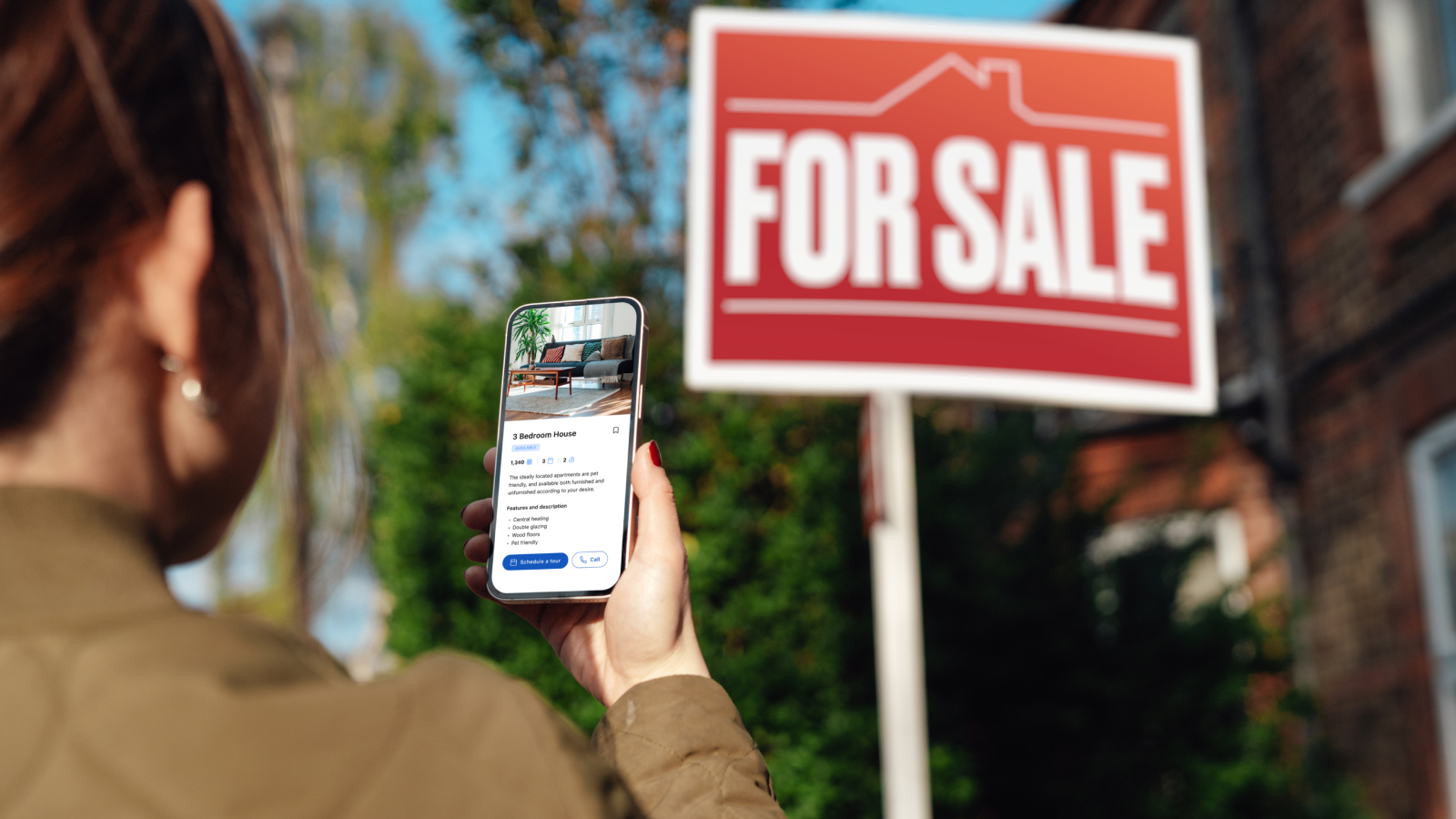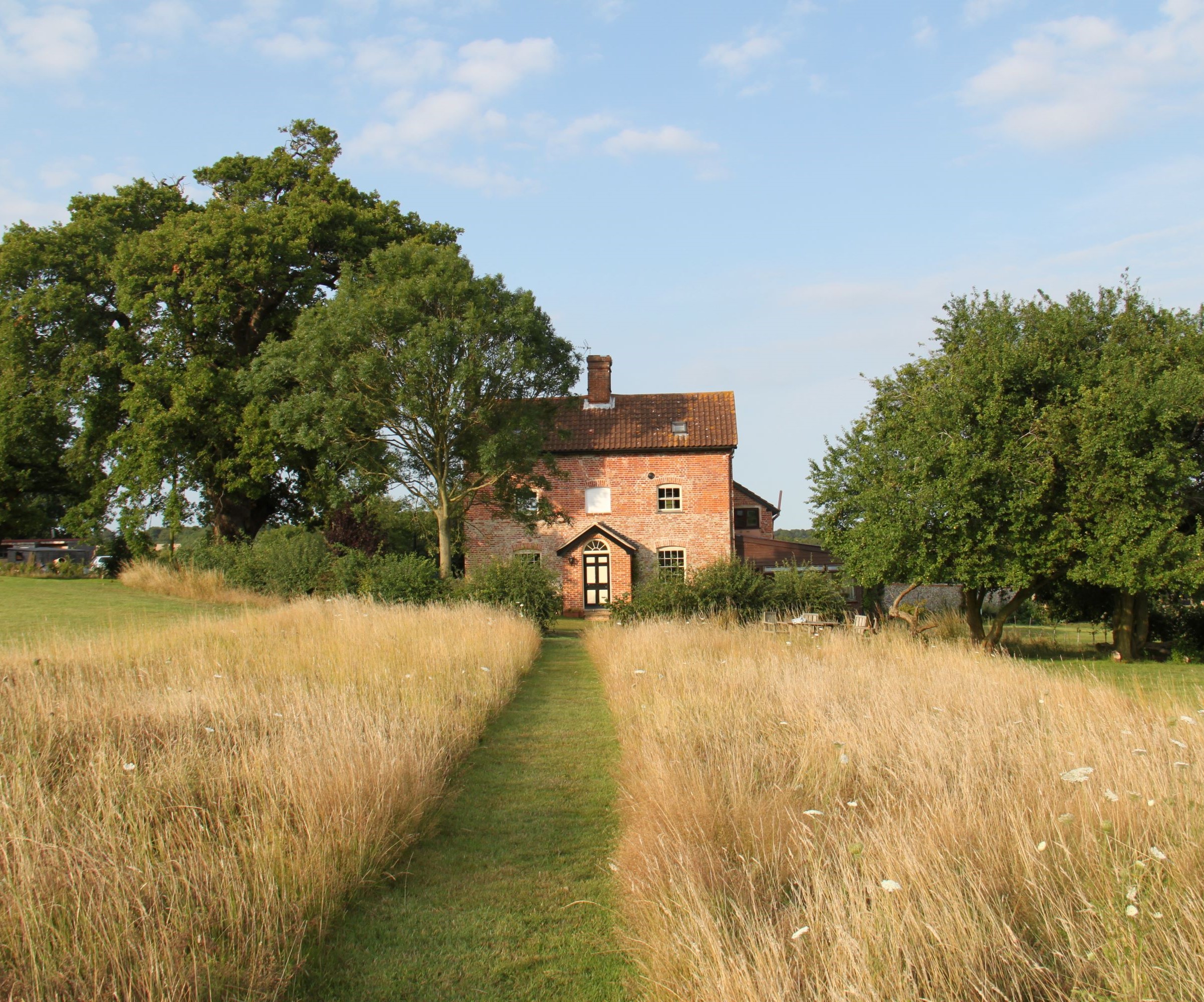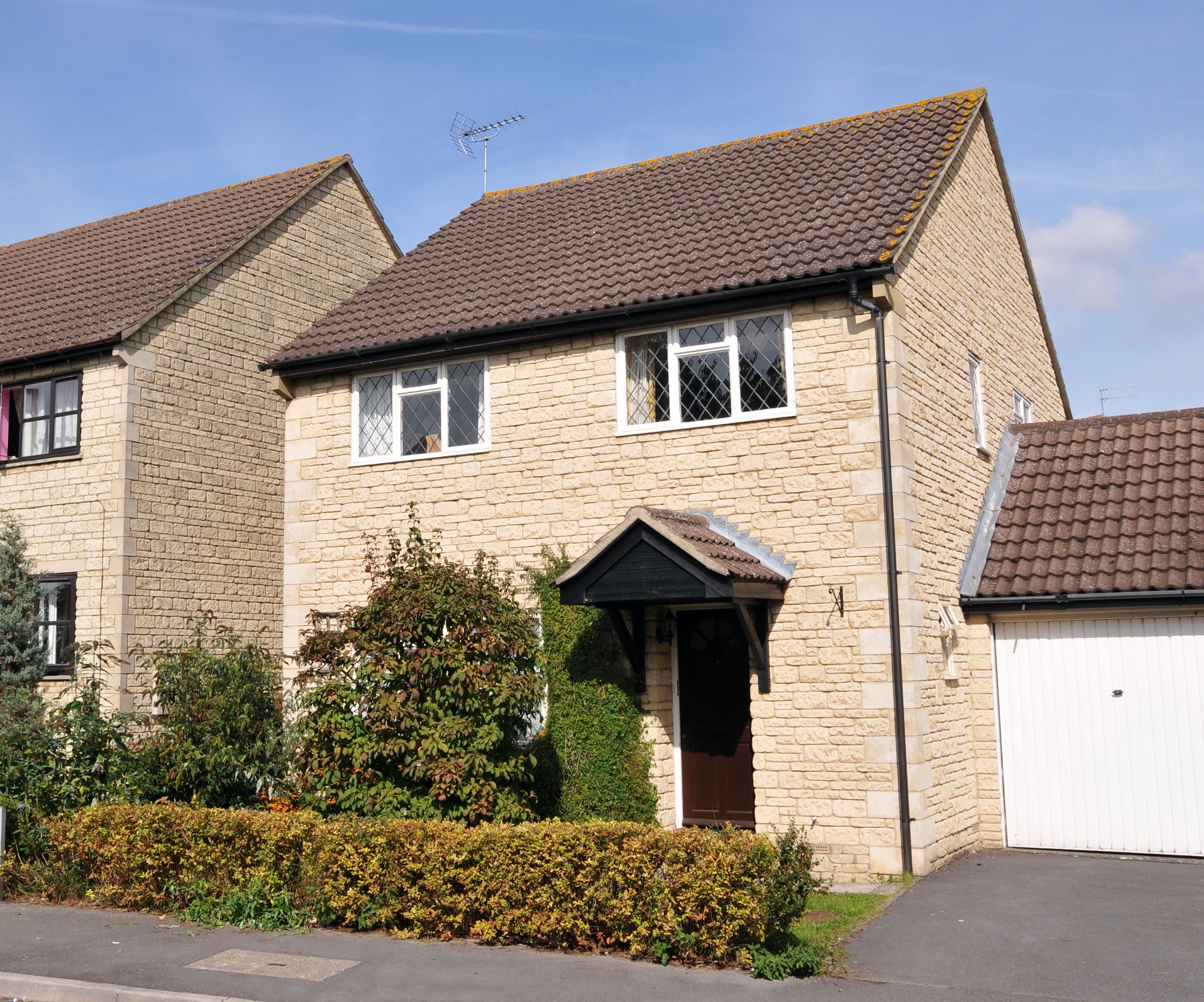Buying a house with cash or without a mortgage — do you know how to do it?
Buying a house for cash can be quicker, easier and less likely to fall through than taking on a mortgage, but it’s important to understand some key differences

Between 30 and 40 per cent of UK homes are bought for cash every year, according to HM Land Registry.
Buying for cash means you have enough money to purchase a property outright without needing to seek a mortgage. However, sometimes cash buyers may take an unsecured loan to make up a shortfall. Or arrange bridging finance on an existing property to release equity.
“Not all buyers are true cash buyers – some will take out a bridging loan to enable them to move quickly if they haven’t sold their own home and put them ahead of the competition,” says Mark Harris, chief executive of financial services intermediary SPF Private Clients
In theory, buying a house without a mortgage should be more straightforward than with one. “This is particularly the case given the issues that often arise, not just in obtaining finance in the first place, but with surveyor’s valuations for mortgage purposes,” says Jeremy Leaf, north London estate agent, and a former RICS residential chairman. “A valuation can come in lower than the price offered and accepted by buyer and seller, which means a tussle with the lender.”

Jeremy Leaf is principal of Jeremy Leaf & Co, a North London firm of independent chartered surveyors, new homes’ development consultants, sales and lettings agents which began trading in 1984. A fellow of the RICS as well as the National Association of Estate Agents (NAEA) and the Association of Residential Letting Agents (ARLA), Jeremy was residential chair of the Royal Institution of Chartered Surveyors (RICS) for more than five years and its national housing spokesperson for almost a decade. He’s also a judge for the Negotiator ‘Estate Agent of the Year’ awards. He has spoken frequently about property matters on TV, radio and in the press since the early 1990s – and continues to do so today.

With an early career background in banking and mortgage brokerage, Mark Harris is chief executive of SPF Private Clients, an award-winning financial services intermediary. He was part of the launch team of the company as Savills Private Finance in May 1997, originally the financial services arm of Savills PLC. Now SPF has rapidly grown into one of the market leaders in UK financial services, becoming part of the Howden Group of companies in 2022.
Buying a house with cash – where can the funds come from?
Funds when buying a house with cash can come from savings, an inheritance, even a lottery win, and from a mixture of places.
Some cash buyers supplement savings with personal loans, or borrow money from family members. The latter might include what’s known as a ‘gifted deposit’.
More typical when first time buyers are taking out a mortgage, gifting a deposit is when parents or grandparents give offspring a percentage of the purchase price.
Bring your dream home to life with expert advice, how to guides and design inspiration. Sign up for our newsletter and get two free tickets to a Homebuilding & Renovating Show near you.
Steps to buying a house with cash


Subscribe to Plotfinder.net to access over 15,000 building plots and properties that could become your next project
There are two main differences to buying a house with cash and buying a house with a mortgage.
The first difference is that buying with cash is usually quicker and cheaper than using a mortgage. “There are some searches and processes when buying a property that most mortgage lenders require such as affordability checks and valuation surveys,” says Dave Sayce, managing director and founder of home-moving services website Compare My Move. “When you don’t have a lender, the process will go quicker, and your conveyancing fees will be cheaper.”
Second, you won’t have to pay any lender fees, or mortgage interest when buying a house with cash, or without a mortgage. This can make the steps to buying a house with cash simpler compared to buying with a mortgage.
“You won’t need a ‘decision in principle’ to ascertain how much you can afford, nor have to go through a mortgage application to ascertain if you can afford monthly payments,” says Mark Harris. “This can take time depending on the lender you use and whether you employ the services of a mortgage broker, which is always a wise move.”
You will simply make your offer and if the buyer accepts, proceed to the conveyancing stage (see below). If the seller does not accept your first offer, it’s time to negotiate.

Dave Sayce is the owner and managing director of Compare My Move, a website connecting homemovers with professionals including certified conveyancers, surveyors and removal companies. With more than 15 years’ property industry experience, he’s dedicated to guiding people through every step of their moving journey, also providing helpful guides to every aspect of moving house.
Pros of buying with cash or without a mortgage

1. Sellers prefer it: Sellers and estate agents assume you are more proceedable if you are a cash buyer. It takes away the uncertainty of progressing a mortgage application and potentially being refused.
“If two buyers are competing for the same property, the seller may well go with the cash buyer rather than the one relying on a mortgage, particularly if they wish to move quickly,” says Mark Harris.
2. Enjoy a discount: “As a cash buyer, you may even be able to negotiate a lower price as you are in theory more attractive to the vendor,” adds Mark.
Jeremy Leaf agrees, saying that cash buyers hold power. “Cash buyers are in a strong position to ask for a reduction a purchase price, particularly if the seller has previously experienced problems dealing with buyers dependent on finance.”
3. More properties to choose from: Some properties are advertised as ‘cash buyers only’. This could be because they are seriously in need of renovation and may require major works, such as underpinning. If it’s going to be difficult for a buyer to obtain a mortgage, cash is the only option.
4. Buy at auction: With cash at the ready, you’re able to buy a property effectively at auction, whether through a traditional sale room or the modern method of auction online.
5. It’s usually faster: Buying with cash is usually faster than a mortgaged purchase as there are fewer hoops to jump through. Read more on this in our FAQs below.
6. Less risk of sale falling through: Sales often collapse because the buyer can’t meet tight mortgage criteria. This isn’t the case for cash buyers, who are especially valuable in a long chain of sales and purchases.
7. More security: As a cash buyer, you will immediately own the property outright. No-one will hold a ‘charge’ over it. Also, there’s no risk of a lender repossessing your home due to falling behind on mortgage payments.
Cons of buying a house with cash or without a mortgage
1. No spare cash: Mark Harris says that before you take the decision to go for a cash purchase, it’s important to seek advice from a whole-of-market broker to discuss your wider financial position.
“Even if you do have enough cash to ensure you don’t need a mortgage, it might not be in your best interests to plough all of your life savings into your home,” he warns. “This is particularly the case if you are selling stocks and shares and cashing in ISAs to do so.”
2. Accepting affordability: It might be tempting to put every last penny into your cash purchase, but experts warn it’s foolhardy to leave nothing left over for emergencies. Also, consider regular outgoings. In the midst of a house move, you might not be picking up regular payments such as overtime, or any work at all if you’re self-employed. Keep some cash back to cover essentials.
3. Risk and the need for insurance: Mortgage companies demand buildings insurance to ensure the property – which they effectively own until borrowing ends – is covered in case of problems such as subsidence or flooding. Don’t skimp this step if you’re a cash buyer.
Buying with cash demands a lot of due diligence that mortgage lenders would usually ask for. It’s especially important to check, with your conveyancer, that correct permissions for any building works have been obtained by the seller. If anything is in doubt, you may need to take out indemnity insurance to cover the property in case of problems.
4. Potential to overspend: “One disadvantage of buying without a mortgage is that rather than get a bargain you may end up spending more than the house is worth,” says Mark Harris. “With a mortgage, there is a limit to what the lender will lend depending on the property value as ascertained in the mortgage valuation.”
If you buy with no such control in place, it’s important to do check the comparable asking and sold prices of similar properties nearby, using a property portal or Land Registry.
“If you don’t, you may not even realise that you are paying more than market value and could get carried away if you really want a particular property,” adds Mark.
5. Sellers may be wary: Cash buyers can be more demanding on the seller because they often expect a better price in exchange for being able to proceed quickly, according to Jeremy Leaf. “We also find that they carry out more detailed inspections as well as valuations of their chosen property.”
6. ‘Cash-only’ sales could be problematic: Properties marketed as ‘cash buyers only’ may have something wrong with them. These could include structural problems such as subsidence. Or the property could be built of ‘non-standard construction’, such as all-timber. Or, if it’s a leasehold property, it might have only a short lease left.
However, not all cash-only sales carry red flags. Sometimes, sellers want cash buyers because they need to offload a property quickly. Examples include in the case of divorce, to stop repossession happening, or to pay care home fees.
Is buying with cash or without a mortgage worth it?
You will save money on the costs of buying a house, because you won’t need to cover any arrangement fees or mortgage valuations demanded by lenders. Dave Sayce estimates cash buyers save an average of 6 per cent on conveyancing charges, compared to buyers using a mortgage.
Also, ongoing costs will be lower, because these relate to the interest that would have to be paid on a mortgage. “Over time, this interest can add up to tens of thousands of pounds for an average-priced property,” says Dave. “While paying off a mortgage early might seem like a way to avoid these costs, many lenders impose early repayment charges, which can still lead to significant expenses.”
Having the full payment upfront means a cash buyer can proceed without relying on the sale of another property. “This makes the transaction faster and more certain, which is attractive to sellers,” says Dave.
“As a result, sellers may be willing to offer a discount, particularly if they are looking to finalise the sale quickly.”
FAQs
Can it be more expensive if taking personal loans?
Personal loans will usually have higher interest rates than mortgages. There is nothing secured on them, so the lender is taking a bigger risk, meaning higher interest payments.
For this reason, it’s not advisable to borrow large chunks of money for a house purchase this way as it will cost much more in interest over the term of the loan. Borrowing smaller amounts on a personal loan to make up a cash shortfall, or to carry out renovations, can work.
When does cash need to be transferred?
The conveyancing process when buying a house with cash is largely the same as when using a mortgage, with a few key differences.
The first step is to provide proof of your funds and the source of those funds.
One major distinction is that cash buyers can exclude checks and searches often required by mortgage lenders.
Even as a cash buyer, you will usually need to pay a deposit when exchanging contracts. This deposit secures the sale and makes the agreement legally binding, similar to a mortgage purchase.
Deposits typically range from 5 per cent to 20 per cent of the property price. “Because you are paying in full with cash, the deposit amount has less significance compared to a purchase involving a mortgage lender,” Dave Sayce explains.
On completion day, the remaining balance of the funds is then transferred on via your solicitor, at which point ownership of the property is officially transferred to you.
Do I need a solicitor to buy a house without a mortgage?
Technically there is nothing to stop you doing your own conveyancing, but you definitely need a solicitor, or licensed conveyancer, for one key aspect of buying with cash. They must verify, under Anti-Money Laundering (AML) regulations, not only that you have the funds to purchase a property but also establish the source of those funds.
Do I need a survey to buy a house without a mortgage?
You won’t need a survey for a mortgage valuation, but you should always have a survey done anyway to assess the condition of the property and highlight any major issues such as damp, subsidence or structural problems. A RICS Level 2 Home Survey (homebuyer survey) is the most common survey type when buying with cash, says Dave Sayce, while a RICS Level 3 Home Survey (building survey) is more in-depth.
“The surveyor will also tell you what the property is worth, putting your mind at rest that you aren’t going to be paying too much if you are buying for cash,” adds Mark Harris.
Will I need to show where my cash came from?
Yes, in the UK, both estate agents and conveyancing solicitors are legally required under Anti-Money Laundering (AML) regulations to verify not only that you have the funds to purchase a property but also the source of those funds. This is a critical step to ensure the legitimacy of the money being used in the transaction.
“If you are unable to provide proof of the source of your funds, your conveyancing solicitor may decline to represent you, and the estate agent could refuse to progress the sale,” says Dave Harris. “In cases where there are significant concerns, the relevant authorities may be notified.”
Acceptable examples of proof for the source of funds include:
- Bank Statements: Showing consistent deposits into a savings account over time
- Sale of Assets: Documentation for the sale of property, investments, or other assets
- Inheritance: A copy of the will or a letter from the executor of the estate, confirming the funds were inherited
- Proof of funds: is one of the first steps in the conveyancing process. Providing this documentation promptly and accurately helps ensure the process runs smoothly and complies with legal obligations
How long does it take to buy a house without a mortgage?
When buying a house with cash, it’s estimated that you could save an average of 4 to 8 weeks on the conveyancing timeline, which can take up to three months, but often longer, according to Dave Sayce. However, this can vary depending on individual circumstances.
Buying a property with cash can be exciting and straightforward, as long as you’re aware of your obligations and follow the rules. Looking at a property in need of work? Find out how much to add to your budget with our comprehensive guides to the essentials such as the cost to rewire a house and costs for a new roof.

